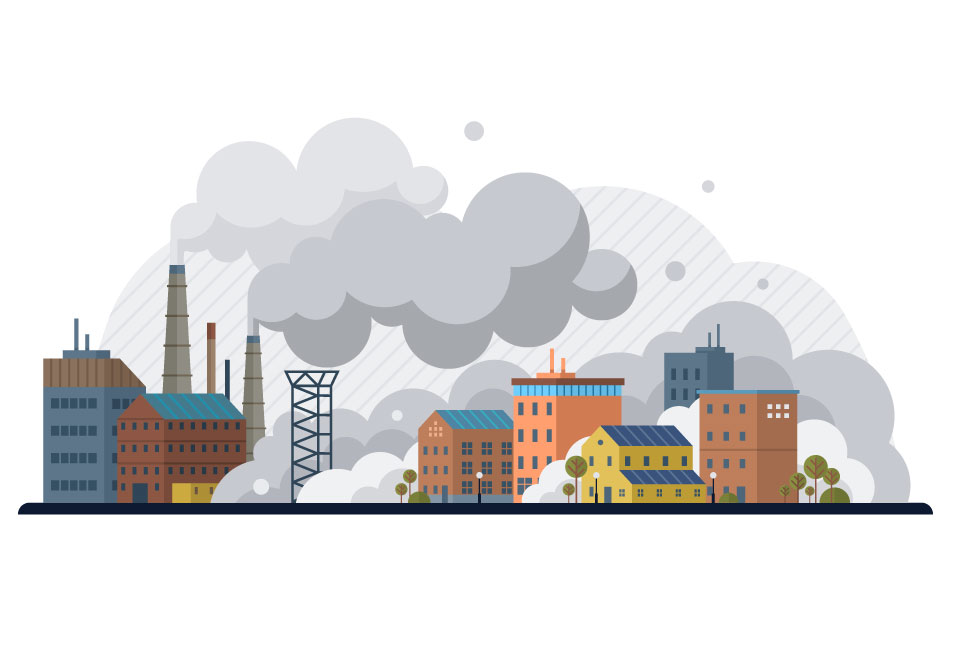

Around 10% of the Swiss population live near a petrochemical plant involved in plastic production. They are exposed to potentially hazardous emissions, according to a study.
A newly released report by Greenpeace International shows: In 11 countries, more than 50 million people are at risk of polluted air because of emissions from plastic production. These results show once again that too much plastic is being produced. Greenpeace International’s report, titled «Every Breath: The Air Pollution Risks of Petrochemical Production in the Plastics Supply Chain», looks at petrochemical plants that produce the components needed to make plastics, producing pollutants such as volatile organic compounds (VOCs), nitrogen oxides (NOx), sulfur oxides (SOx) and particulate matter (PM). The surveyed countries include Indonesia, Canada, Malaysia, the Philippines, South Korea, Thailand, the United States, Germany, the United Kingdom, the Netherlands and Switzerland. The report provides an estimate of the number of people living within 10 km of such assets. In Switzerland, this is 973'000 people.
There are nine risk areas in Switzerland
Studies show that these health hazards are present in higher concentrations near petrochemical plants. In documented case studies, people living near petrochemical plants suffer disproportionately from cancer, respiratory disease, and premature death. The United Nations refers to some of these regions as «victim areas».
According to the report, there are nine risk areas in Switzerland, six in German-speaking Switzerland and three in French-speaking Switzerland. The estimated number of affected people rises to more than one million if the population of the neighboring areas (France and Germany) is included. Switzerland ranks second among the countries studied, with 10.9% of all people living less than 10 km from a petrochemical plant. «The report shows that plastic production is also a serious public health problem in Switzerland. Nearly one million Swiss live near such plants. Scientific literature indicates that living near petrochemical sites poses an increased health risk Switzerland must do everything it can to reach an international agreement in Geneva in August that tackles the problem at its root: We call for a 75% reduction in plastic production by 2040 in order to limit the risks to health, climate and the environment», says Joëlle Hérin, consumer and circular economy expert at Greenpeace Switzerland. From 5 to 14 August 2025, negotiations on an International Convention against Plastic Pollution will take place in Geneva.
These are the main conclusions of the report
The report warns against the industry’s plans to increase global plastic production by 2050. That would lead to more «victim areas», more waste exports to low-income countries, and more short-lived products – and exacerbate the climate and health crisis.